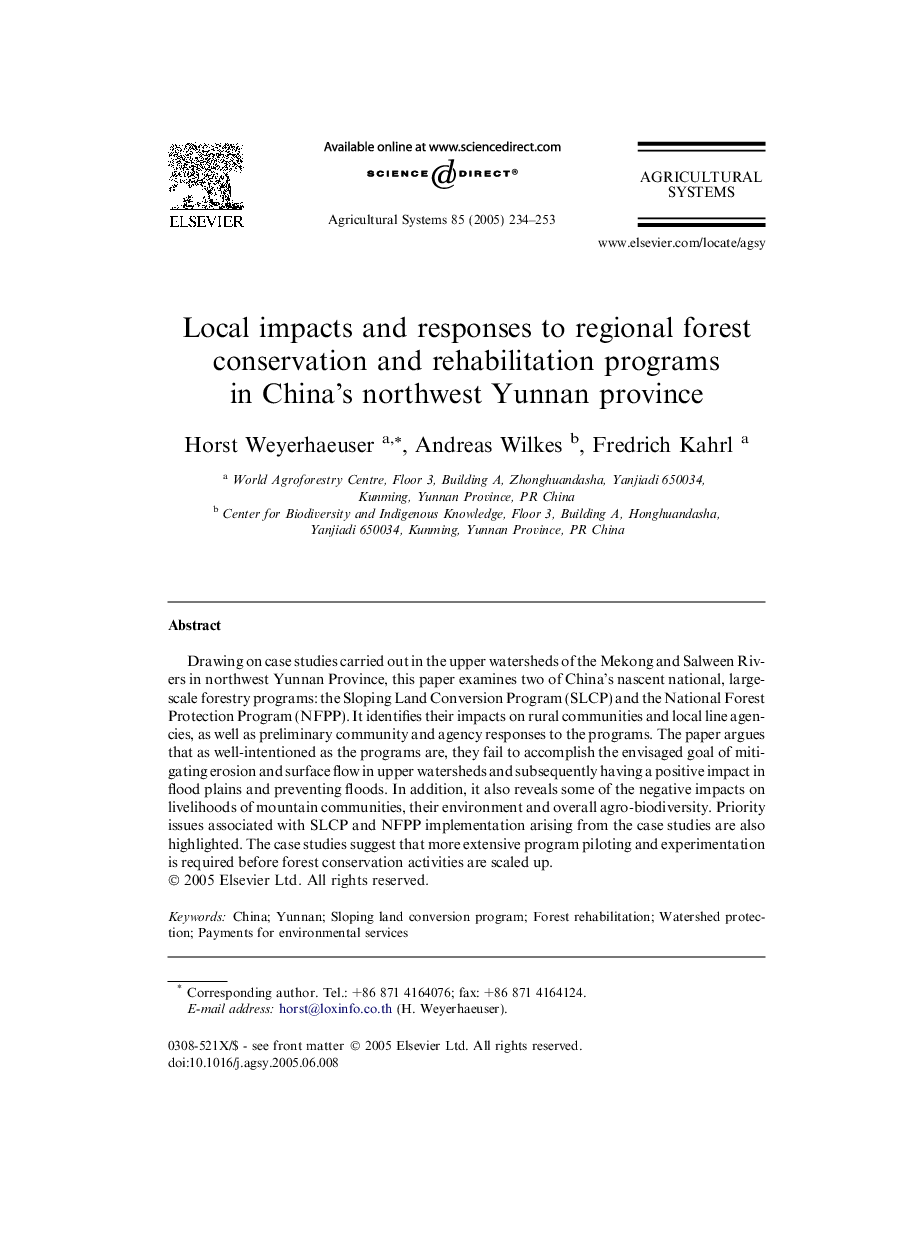| Article ID | Journal | Published Year | Pages | File Type |
|---|---|---|---|---|
| 9469185 | Agricultural Systems | 2005 | 20 Pages |
Abstract
Drawing on case studies carried out in the upper watersheds of the Mekong and Salween Rivers in northwest Yunnan Province, this paper examines two of China's nascent national, large-scale forestry programs: the Sloping Land Conversion Program (SLCP) and the National Forest Protection Program (NFPP). It identifies their impacts on rural communities and local line agencies, as well as preliminary community and agency responses to the programs. The paper argues that as well-intentioned as the programs are, they fail to accomplish the envisaged goal of mitigating erosion and surface flow in upper watersheds and subsequently having a positive impact in flood plains and preventing floods. In addition, it also reveals some of the negative impacts on livelihoods of mountain communities, their environment and overall agro-biodiversity. Priority issues associated with SLCP and NFPP implementation arising from the case studies are also highlighted. The case studies suggest that more extensive program piloting and experimentation is required before forest conservation activities are scaled up.
Keywords
Related Topics
Life Sciences
Agricultural and Biological Sciences
Agricultural and Biological Sciences (General)
Authors
Horst Weyerhaeuser, Andreas Wilkes, Fredrich Kahrl,
